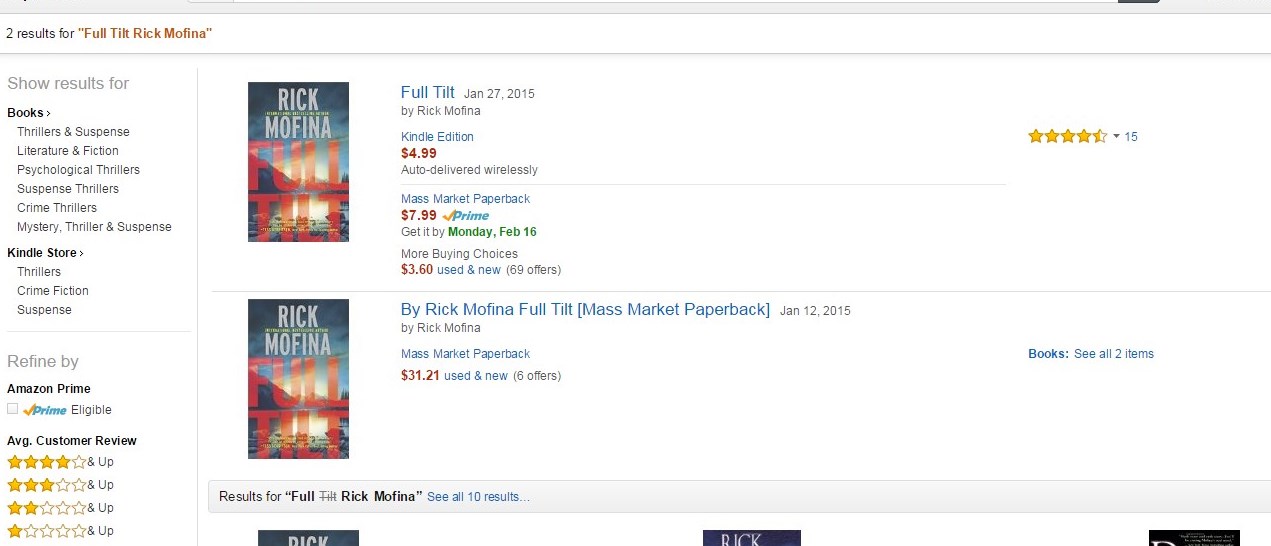Books at twice the price … only available here!
Why would a book on Amazon sell for $42.19 on one page and $19.70 on another when they are the same product and same format?
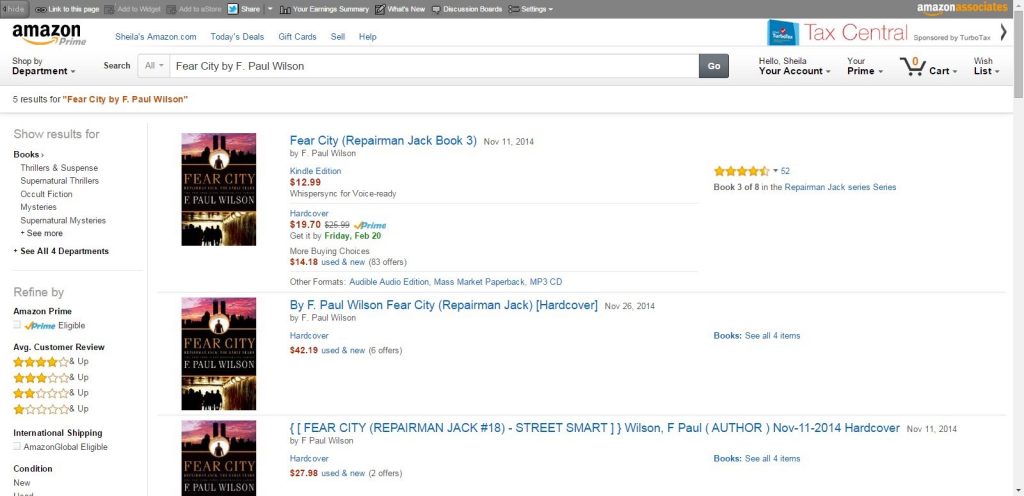
Why would Amazon allow a third party seller to tell its customers that a book is “only available from third-party sellers” when it is not? One can argue that sellers should be able to sell their items for whatever price they want. But, when they double the normal price of a book and then give misleading information to customers saying they are the only sellers of the book, it feels like fraud. It is at least misleading to customers.
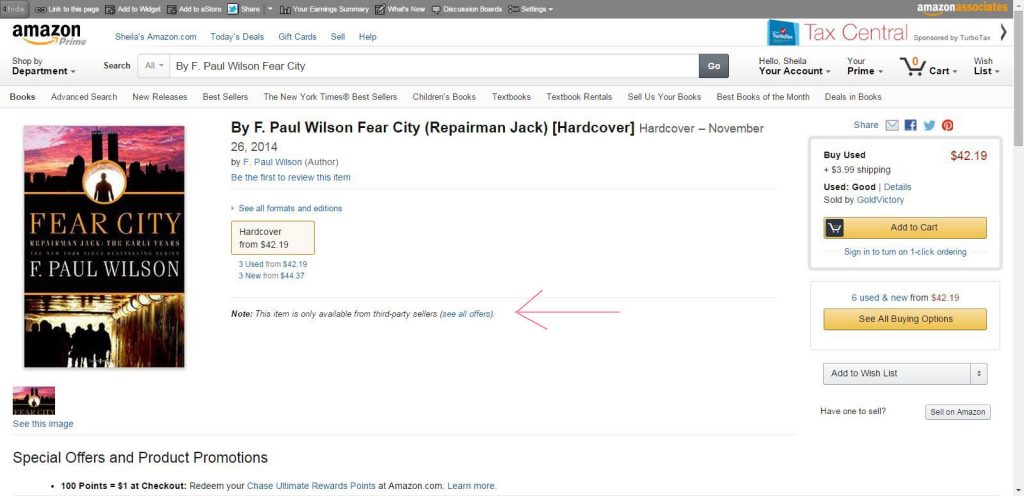
Amazon is reluctant to address this problem. Not only did they not reply to our query for this article, but when contacted via email on several occasions they would not reply to a customer query either. The email was completely ignored by Amazon, just as it was by the third-party seller.
E-mails are relatively easy to ignore, so there were several phone calls placed to customer service regarding this issue and from there transferred to management. Although it was agreed that the listing shouldn’t be separate from the one Amazon put up, no one could explain how or why this happened. There were only assurances that it would be looked into and addressed. The page with the misleading information remains there to date.
There are inherent problems with the customer service route when you have a pre-sale problem with a third-party seller. First of all, the only process available is the A-to-Z Guarantee claim, which can only be used after purchase. Then, there are not clear paths for customer service to take when the problem appears unethical in nature as opposed to a mistake on the website like a misspelling or wrong picture. But, the customer service person is encouraged to say whatever gets him/her a positive survey after the call, so there’s lots of talk and little action happening to ensure that readers are not being mislead.
How does this affect sales?
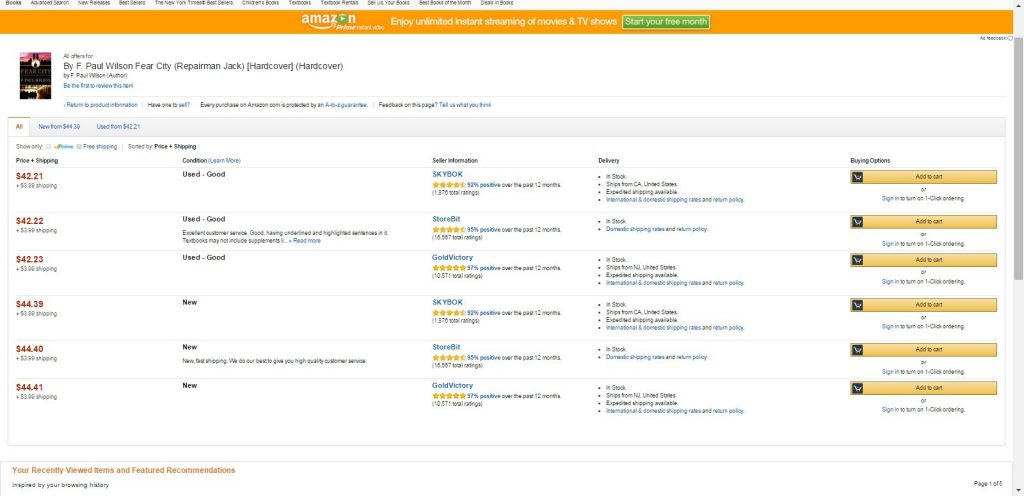
Though a reader is likely to realize when a book it twice the normal price, it can cause negative feelings that the reader may associate with the author or publisher as opposed to the seller. The reader can always choose to shop elsewhere, but once on the Amazon site, with so many choices of books to read, it can be easier to just choose another book as opposed to leaving the site and looking elsewhere. So, can it affect sales? Yes. By how much, it’s likely negligible in measure of money, but readers who feel an author or publisher is price gouging them, that is something that could damage an overall brand or reputation.
How does this affect readers?
Readers are savvy online shoppers as a rule. So, it could be said that most readers would realize that a book that normally sells for less than $20 must have something special about it if it is selling for over twice that. But, there’s no indication that it does. We reached out the one of sellers selling the book for over $40 asking if this was signed or had some additional value to it not noted on the Amazon page. They never answered.
For readers who many not be savvy when it comes to online shopping, the landing page for this inflated-cost book tells them this is the only place on Amazon they can purchase it. If they want it, and they want it from Amazon, they are told that a limited number of third-party sellers are the only ones selling it.
After a brief survey of casual readers asking them to look at the page and tell us whether or not this book is available on Amazon, we received replies saying it was not. That this book is only available from those sellers listed on that page. Some responding to the survey became angry, knowing they were being misled.
Fear City by F. Paul Wilson is not the only book being targeted for inflated sales by third-party sellers. There are many. Some have the notice saying it is only available through certain vendors and some say nothing, but do not include all vendors selling the book.

If you look carefully, you’ll note that the books being sold at twice the price list the book, first by the author name, then the book title, which is not the standard practice of Amazon.com. Amazon.com normally lists the title of the book, then the author and all sellers selling this book are listed in one place. We’ve seen other creative ways sellers list books when they don’t want it listed under the ISBN.
Third-Party Vendor Problems
Third-party vendor problems are not new to Amazon.com. In 2013 manufacturers complained about unauthorized dealers of products. One problem is that Amazon has a process in place to deal with third-party sellers only AFTER the purchase. There isn’t a system in place to notify Amazon if there is a problem prior to purchase. Of course, Amazon gets a portion of sales from these third-party sellers, so there’s not much incentive to stopping unethical practices, or even simple mistakes, prior to purchase.
Third-party vendors appear to be regulated only after a purchase. You can’t count on a vendor’s reviews either. It is relatively easy to purchase 4 and 5 star reviews. It was suspicious to see products being sold at twice the price, but gaining 4 and 5 star reviews.
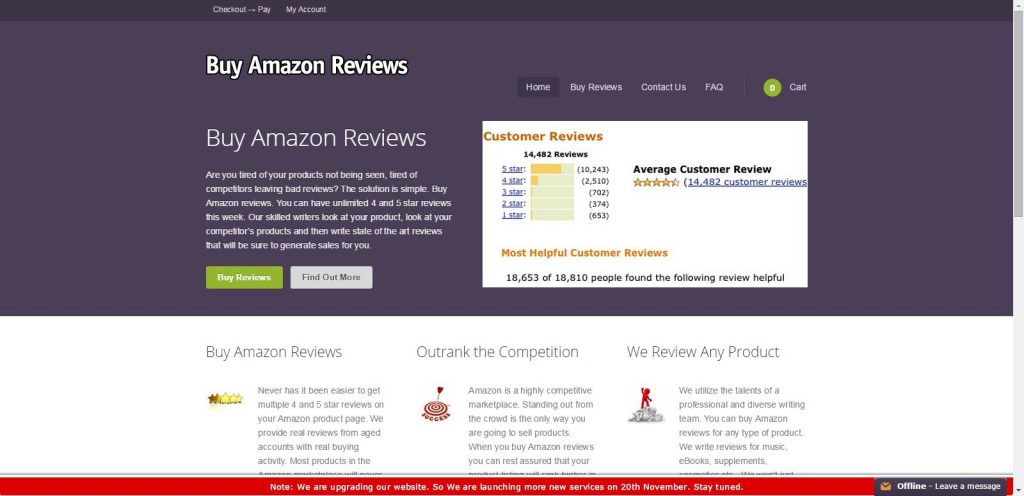
The point is, third-party sellers on Amazon need more pre-sale regulation and customer interface options that Amazon monitors when a pre-sale issue is reported.
Is It A Lie?
Is it misleading, or an actual lie for a seller to note on their page that something is only available through them and select vendors, when they must know the book is available on Amazon, even from Amazon?
Amazon could simply make it a rule that sellers must include the ISBN of a book if it has one. Allowing ASINs instead of an ISBN when one is available causes customer confusion as multiple books are listed without a clear explanation as to what the difference is between them.
Does it Matter?
The potential to de-fraud should be a great concern for everyone. Giving an inflated price while also telling customers they are the only sellers is unethical, but whether or not it is illegal seems unclear. Certainly “Buyer Beware” is the call to action in this digital age where questionable practices are overlooked or ignored.
If you know readers who buy books from Amazon you may want to suggest that they only purchase books with ISBNs or that clearly show they are sold by Amazon itself. Otherwise they could be paying too much.



